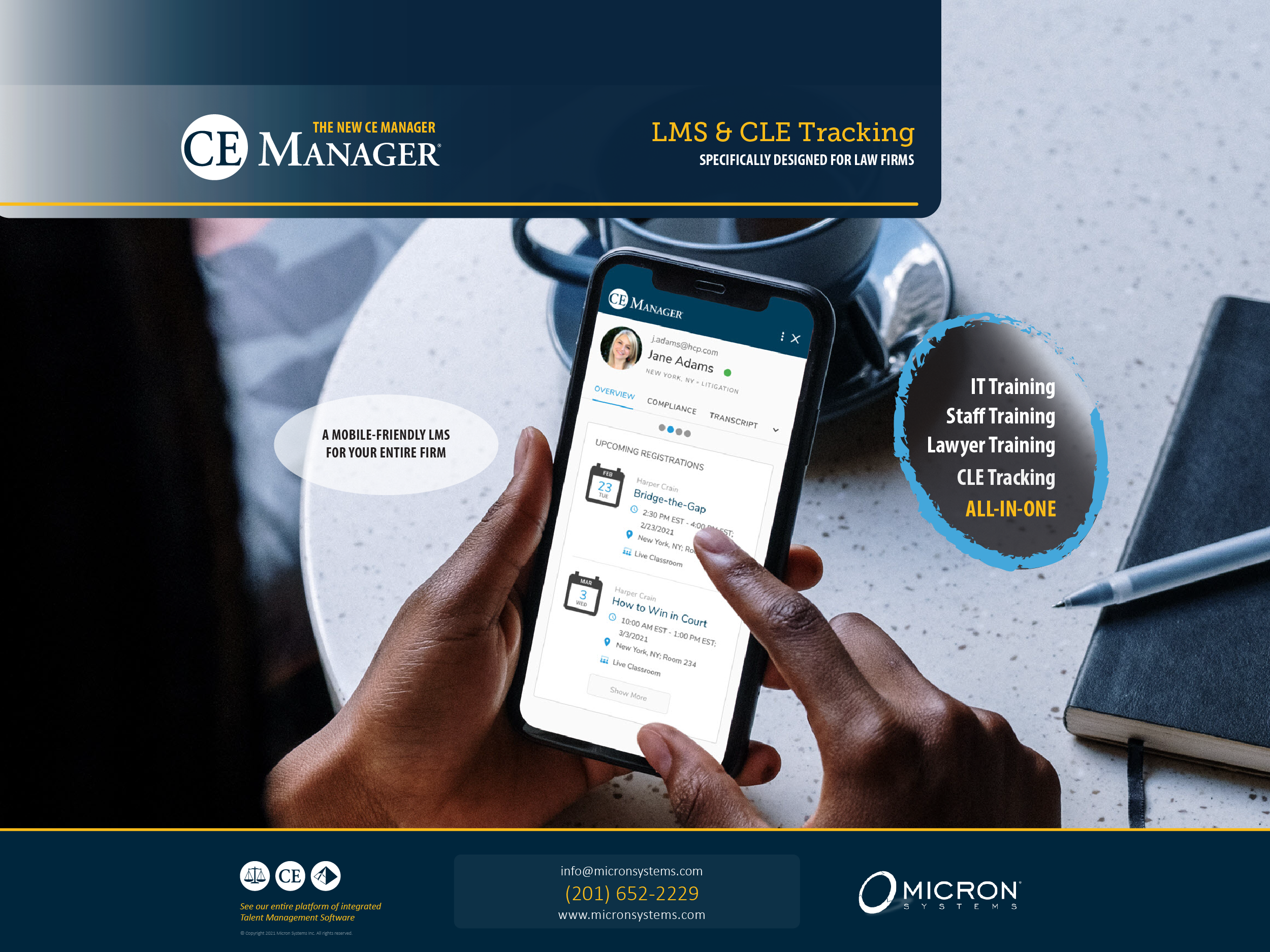Eighty-seven percent of legal industry members now receive requests for proposals (RFPs) asking for information about their environmental practices, initiatives and results, according to the latest Law Firm Sustainability Network survey. Fifty-three percent said their current or new clients feel environmental sustainability is very important, a notable rise from 24% in 2018.
“A lot of these global, really big clients have to report on their sustainability initiatives, and they have to talk about their supply chain and vendors,” says Law Firm Sustainability Network (LFSN) Executive Director Gayatri Joshi. “Law firms are a part of that; we are one of their vendors.”
FREQUENT SUSTAINABILITY THEMES
Carbon footprint-related practices are currently one of the top sustainability concentration areas — and the leading investment legal industry members told LFSN they’d make if resources and budget weren’t a consideration.
Gauging annual carbon usage became a goal in 2019 for Davis Wright Tremaine, a more than 550-attorney firm with eight U.S. locations, says Partner Tom Burke, who serves as the firm’s Sustainability Committee Chair.
“Many of our clients have asked us to document and respond to surveys [about] our carbon usage and the reduction of greenhouse gases,” Burke says. “The most significant work, which really affects the measuring and reduction of a law firm’s footprint, is at the office level. You can basically look at how you commute, how you travel and the office reduction.”
Law firms may need to plan ahead to obtain some of the necessary metrics to position them to improve their sustainability over time, such as energy usage readings for each floor in new office space.
“The most significant work, which really affects the measuring and reduction of a law firm’s [carbon] footprint, is at the office level. You can basically look at how you commute, how you travel and the office reduction.”
“All of that data you can track and measure for in the years that you’re in that building,” Burke says. “Often, landlords are very reluctant to give information; they’re not used to being asked. So you have to start early enough in the leasing negotiation period and say, ‘Yes, we need that information.’”
Office updates can also help firms conserve resources. In addition to moving to more sustainable types of packaging, Raleigh, North Carolina-based Wyrick Robbins installed automatic sink sensors in its bathrooms, which quickly shut the water off after use.
“While there’s a small associated capital expense, it wasn't large,” says Partner Larry Robbins. “I’m confident we're probably at 50% of the water usage now as we were maybe five or six years ago.”
THE PANDEMIC’S EFFECT ON FIRMS’ EMPHASIS
In the wake of the COVID-19 pandemic, business travel has become another popular sustainability target area for law firms.
“Because of the pandemic, they have been able to see how they can create different ways to reduce business travel,” Joshi says. “Whether it's virtual conferencing or choosing different kinds of airlines or flights, they see that this is going to be a big way to impact emissions.”
Being more intentional about flights is a fundamental focus for Davis Wright Tremaine this year, according to Burke. “Particularly after the pandemic, everybody’s thinking about seeing clients and doing the sorts of travel they did before,” he says. “One of the things that can really make a difference in a carbon emission footprint of a firm is to make sure you’re traveling [only] when you need to. You don’t necessarily take the one-day trip a long way away.”
When employees needed to be based off-site during the pandemic, some firms realized a more permanent remote work environment could contribute to their Scope 3 reduction efforts — targeting what the protocol developed by the World Resources Institute and the World Business Council for Sustainable Development defines as indirect greenhouse gas emissions produced by an organization’s value chain.
“One of the things that can really make a difference in a carbon emission footprint of a firm is to make sure you’re traveling [only] when you need to. You don’t necessarily take the one-day trip a long way away.”
“I’ve been speaking to a couple of law firms that are looking to make remote hybrid part of how they do business specifically because they’re looking at it as a way to help them in terms of their environmental impact reductions,” Joshi says. “Even though part of it, of course, is they think it’s a better way to do business and it helps their employees, there’s a very major focus on looking at it from an environmental perspective.”
The pandemic-era shutdown opened a number of industry members’ eyes to new sustainability-related possibilities, according to Warren Koshofer, a Partner at Michelman & Robinson, LLP.
“You were working remotely, and you weren’t printing everything out at your home — you’d be burning out small printers,” Koshofer says. “You weren’t commuting. You really learned how to work differently and work more in an environmentally friendly way. It actually helped with the entire initiative.”
SUPERVISING ENVIRONMENTAL ENDEAVORS
Law firms have approached sustainability and environmental, social and governance (ESG) program management in different ways. Davis Wright Tremaine, for instance, has a firm-wide committee comprised of attorneys and staff that meets every other month.
Five subcommittees within the group work on specific initiatives, such as assessing common commute practices and the feasibility of offering incentives like electronic car charging stations and bike racks.
“There are a lot of logistics [in those efforts],” Burke says. “Which is why it’s great to have a committee of the size that we do, where people can just say, ‘OK, I’ve got that; I’ll push on that one.’”
“Law students are going to choose those particular law firms that [are] pursuing reducing their environmental impact and working toward making a better future for them. There’s also the employees’ [perspective]. A lot of folks want to feel they’re in a place that matches their values.”
Some firms have added a management-level sustainability or ESG role to provide comprehensive oversight. With an increased need for law firms to share information about their environmental achievements in a thoughtful and proactive way, Joshi anticipates the demand for dedicated sustainability professionals within firms will escalate.
“Having one person who can have that sky-level view of how all these things come together, and help put forth and implement a plan, we will definitely see more of, especially as more clients are expecting firms to report their commitments,” she says.
Other law firms have opted to obtain external guidance when establishing their initiatives — including Wyrick Robbins, which began working two years ago with Green Places, a sustainability-based service provider that helps businesses calculate their carbon footprint and execute eco-strategies.
Following an extensive assessment of the firm’s practices, from employees’ daily commutes to food waste processes and electronic equipment disposal, Green Places worked with Wyrick Robbins to create a sustainability and carbon reduction plan, Robbins says.
“Formally implementing a program is perhaps the most difficult part,” he says. “It can be overwhelming. There’s just so many things that you might consider doing. Having an opportunity to have someone guide you and give you the actual steps for a plan made a lot of sense for us.”
Seven-office firm Michelman & Robinson is one of the 18 law firms that work with Lawyers for a Sustainable Economy, an initiative launched in part by Stanford Law School in 2018 that pairs participating firms with sustainability-focused entrepreneurs and nonprofits that need pro bono legal services.
To date, Michelman & Robinson has helped a number of agricultural tech, sustainable material providers and other entities — largely startups, Koshofer says — with tasks such as nondisclosure and compensation agreements.
The firm has also undertaken several internal environmentally oriented initiatives — ranging from purchasing energy-efficient kitchen appliances and setting timers to turn lighting off in unoccupied offices to having copy machines automatically revert to an energy-saving mode when not in use.
Digitizing files, Koshofer says, has allowed the firm to eliminate thousands of boxes of paper.
“We’ve done basically everything and anything that's feasibly possible toward conservation and sustainability,” he says. “We’ve utilized server and storage virtualization in our data center to reduce the number of physical servers; that reduces overall electrical usage. The digitizing of files is something most law firms are doing or certainly should be — having all those redundant paper files is just wasteful at this point.”
ADVANCING INDUSTRY ACTIVITY
In addition to reducing operational costs and providing the level of transparency clients want, law firms’ sustainability efforts may have other indirect effects — such as helping with recruiting and retention.
Numerous LFSN members, Joshi says, have told her that prospective hires have increasingly expressed an interest in their firm’s environmental approach in the past several years.
“They are hearing law students asking them, ‘So tell me about your practices — do you recycle?’” she says. “They want to know about all things sustainable and ESG. Law students are going to choose those particular law firms that [are] pursuing reducing their environmental impact and working toward making a better future for them. There’s also the employees’ [perspective]. A lot of folks want to feel they’re in a place that matches their values.”
Wyrick Robbins’ employees were a major impetus for sponsoring sustainability programs, Robbins says.
“They’re paying attention, and they want to know their employer and the people they see on a day-to-day basis are concerned about the environment and working toward sustainability,” he says. “We’re absolutely confident our employee base is positively impacted by this — and that they want and demand it.”
Regardless of the reason a firm spearheads a sustainability initiative — or which specific areas it decides to focus on first — to ensure all resource conservation and other efforts will be as effective as possible, establishing well-defined targets and a way to evaluate progress is crucial.
Some entities use the LFSN’s American Legal Industry Sustainability Standards (ALISS) online self-assessment tool, designed to help law firms gauge their sustainability activities’ impact via a score that represents the percentage of total points a firm can possibly achieve.
Other potential measurement and reporting frameworks include the United Nations’ Sustainable Development Goals, which offers 17 strategies to combat climate change and other issues, and the Science Based Targets initiative, which provides guidance to help companies achieve net-zero emissions before 2050.
“You have to track, benchmark and set goals,” Joshi says. “It’s so much easier to communicate those successes and wins and to get people excited about it — and to just show the impact and actually do the good work.”
Davis Wright Tremaine, for instance, conducts an annual survey involving its carbon footprint — something Burke says the firm established to not only allow it to respond to information requests from clients but also determine a baseline and help the firm internally measure its progress.
“You can say, ‘Oh yeah, we’re sustainable, and we’re doing all the right things,’” Burke says. “That’s all talk unless you’re actually able to look at where you were every year. We’re measuring what we’re doing, we've got goals for reducing it, and we’re committed to sharing that information with others to get them [on] the same path. It’s a moral obligation to do what we can to sustain our planet — and the choices that law firms make can have a huge long-term impact on future generations.”


